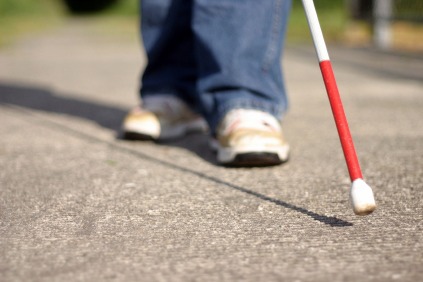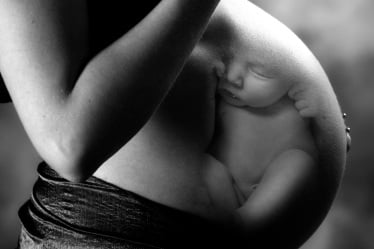“Where are you, Mamta?” Mr. Sachdev stormed into her room fuming, brandishing a bouquet of roses in his hand. “Look! A present from a roadside Romeo, delivered by the guard. Explain! At once!”

The Growing Years [Illustration by Shinod AP]
“Who is this boy? Are you having an affair? I want to know.”
“I..I..I” stuttered Mamta. She had no idea who had given her the flowers but how could she explain it to her father? He wouldn’t believe her anyway. He never does. “Tell me!” “Sh.. Sh.!” Mamta’s mother tried to calm her father. “Don’t shout at her, Sunil. Maybe it’s not her fault.”
“Whose fault is it, mine?” Turning to Mamta he shouted, “No evening walks for you, no visiting your friends, no movies. From now on you better study. Think of your Board exam!”
Tears rolled down Mamta’s cheek. She could not bear it any longer. She hated her father, this house and her life. That’s when Mamta decided to run away.
Like Mamta many teenagers, faced with similar situation, run away or commit suicide. What has gone wrong?
“Most of the time the roots of these conflicts or attitude problems lie with the parents and not with the children,” says Dr. Sanaya Nariman, education consultant.
Most adults don’t seem to know that a parent-child relationship necessitates a great deal of physical, emotional and mental investment. What is needed is communication, love, understanding and trust on both sides.
When is the bond between a parent and a child created? “It starts as soon as a couple is married and they plan for a baby,” says Dr. Renuka Jena, an M.A. in psychology and parapsychology who works as a pool officer in AIIMS, Delhi.
“From conception, the responsibility of a child has to be taken on by both parents. Parents should view their own relationship and decide if it is strong enough to take the responsibility of a child. If the mother is happy, harmonious and content it is easier to take the problems of gestation. Since most young people today live on their own and don’t have the support of a joint family, it is imperative they are not burdened by marital problems, otherwise, later on they end up blaming the child for forcing them to stay together.”
Dr. Nariman feels that children who are born to parents undergoing marital problems are put under great “pressure” for they are unsure how long their family unit will stay together. Nina, Dr. Nariman’s twelve-year-old daughter made her parents promise they don’t divorce even though she knows they share a very warm relationship!
The family unit
The family unit is the basis for the development of the child’s personality from that of an infant to a conscious and independent adult. Once the baby is born, the very act of feeding the infant builds a warm and lasting bond between the mother and the child. Till the age of one, the child is very dependent on the mother. “However as the child grows he becomes more independent and by the time he goes to school,” says Dr. Jena, “he learns how to interact with other adults and his peers apart from his parents.”
At the point when the child leaves the mother, behavioural problems surface. Throwing temper tantrums, school phobia, bedwetting etc. may be signs that all is not well with the parental bonding. Emotional problems like fear, anxiety, shyness which may lead to stammering, introversion and learning disabilities, are a pointer in the same direction. Another common disorder is hyperactivity. The child cannot concentrate for any length of time. These problems need to be recognised and tackled.
Helping the child’s sense of identity
A child’s personality is shaped by two important factors: discipline and love. Rules like “Be in bed by 9”, “No sweets between meals” or “No late night shows” laid down by parents may not seem desirable but it is vital for the child to conform to them. The family is the earliest and most persistent influence in the child’s life. Dr. Jena explains, “Whatever the home environment, it is likely to influence his outlook on society and life. Family relationships are the avenues from which the child learns to seek solutions to conflicts.”
Generation Gap
As the child grows a natural generation barrier comes up between them. Aanchal Kain, student of the Sri Venkateswara College says, “No, I do not feel the gap that much. But it’s there though and no one can eliminate it.”
Vir Saran Das says, “However hard my parents try to be modern and change their old- fashioned views, it seems to take them so much longer to change than it takes other people!”
But often time which creates barriers also helps dissolve them.
Madhulika Bhattacharya says, “My relationship with my parents has improved a lot since Class 11, especially since my transition into college. They have realised that once their daughter reaches a certain age freedom goes with it.”
Communication is the solution
It is important for both parents to agree on how their child should be raised. Since parents provide adult models whom children identify with and emulate they should look at their own relationship closely. Take the situation of Aanchal Kain whose mother’s involvement with religious matters has upset family equations. “I wish she would pay more attention to us but she’s too busy with God.” She feels that if the relationship between her parents improves, her relationship with her parents would also improve.
Communication between parents and children is the key link for solutions to problems. “You should be there to listen,” says Dr. Jena. Unfortunately, she feels, a “listening ear” is less and less in evidence with parents busy with their lives and children occupied with the visual media. Dr. Sanaya Nariman feels that television is not only “bad for the eyes but also for the mind” for it keeps children from talking playing, reading or being creative.
Vikramaditya believes that the only thing which will improve the relationship between him and his parents is “talking to each other across the table more often” with a touch of humour and “maybe remove the table in between!” Poonji Singh feels the relationship with her “Mom is really nice but with my Dad it is kind of dry because he doesn’t stay in Delhi. He doesn’t talk to me or even wish me on my birthday.”
Puruva Dixit tries to make her father talk about issues of vital importance like parties, late nights, boyfriends but “he is hesitant to bring them up.”
Watch out! It’s teenage time!
A cross-section of 14-20 year-olds feel that trust between parents and children is of utmost consequence in the growing years. Adolescence is a trying time for youngsters as they are undergoing hormonal and bodily changes during this period. This is also the time when parents set new restraints on their children. This may pose yet another threat to the relationship. Therefore a great deal of understanding, consistency and tolerance is required from the parents so that youngsters can progress and yet be protected from unwholesome influences.
Alisha Raza feels her relationship with her parents “has always been pretty understanding. They have always given me freedom of choice and they have always regarded me as an individual. If they feel I am straying they’d advise me but never suppress me.” This feeling of assurance boosts the child’s morale. Dev Anand Ramiah feels the relationship between his parents and him is “informal and very friendly for there is a lot of trust between us.”
Parents talking about the mistakes they made when they were the child’s age may also stop the child from making the same mistakes. Dr. Sunaya Nariman feels that children understand parents who are “human” and who are “willing to talk and share their problems”.
Did you rebel?
“Yes,” says Tonoya Sen. “I fought with my parents for they were constantly comparing me with my elder sister.”
Divya Sachar who disagrees with her parents on most things, rebels “once in a while.” She screams at her parents and slams doors. Vir Saran Das never rebelled in a very loud sense, it was very subtle: “doing what I wanted to do and they were against me doing but which I felt was right, for I felt they were not able to understand those issues.” Tara Kapur was rude, obnoxious and stayed out late. “I would do things I knew would bug them. I had a lot of the independent spirit. I do not want to be restricted. I can make decisions.”
The mature adult emerges
As adolescence ends and a thinking teenager emerges he is affected by how his parents as individuals and as a couple are coping with the problems in their own life. Shruti Tiwari says, “Once you grow up you see your parents as individuals, not as Mom and Dad. You don’t see them as superhuman. Mom is a woman and you see what she is undergoing as a woman and you see what you Dad is going through as a man.”
By this time most parents would be facing middle age, a transitional period for them. The realisation of what they have achieved and what they might have achieved in life may trouble them.
While metamorphosing into young adults, problems like delinquency, drug abuse, smoking, drinking, lying, stealing, truancy etc. surface if they are not given adequate love and support. Then there are feelings of anxiety, inadequacy, low self-esteem and depression, social phobias like not getting along in the peer group and so on. The young adults have to learn the often painful process of change and learn to compromise something for the improvement in the relationship.
Tonoya Sen says that her relationship between her and her parents is very “healthy, friendly and open and I talk to them about everything yet there are certain limitations.” However she realises that “working a little more on my dance which is what I plan as my career and a bit on my studies would definitely improve the relationship for that is going to make them happy.” Rajat Sharma says he could “clean up his room. It’s a pigsty.”
Indrajit Roy adds, “It is a little too late for my father to change his views for if anybody has to change views or to adjust it has to be me.” The children perceived the core of the problem and tried to rectify it for the sake of better relations with their parents.
Do parents love their sons more?
Generally the relationship between young men and their parents seems to be better than young women and their parents. Dr. Jena disagrees and says “how the child relates to his parents depends upon the family.”
Indrajit Roy contradicts Dr. Jena’s statement. “I too feel that relationship between boys and parents seems better. I don’t know why but there is some logic or psychology behind it.”
Renuka counteracts by saying, “No, girls have better relationships, for they are more expressive. Guys are like Mom’s pets but the ego factor comes between a father and son. In the mother-daughter relationship that’s not so.”
Do parents overprotect their daughters?
“Yes,” says Ruchika, “to a certain extent but that’s justified. It is unsafe if not virtually impossible for a girl to get back home late at night on her own.”
Tara Kapur adds, “Delhi is dangerous so parents have to take care of their daughters.” Divya Sachar says that parents protect daughters whereas sons can do as they please for “society and age-old traditions permit it.”
Vir Saran Das feels the cause lies in the fact that “most guys in Delhi are not be trusted and respect for equal status has not arrived in India.”
How do you perceive your parents to be?
Ebenezer Israel Meiselbach agrees but admits differences may appear on the occasion. Tonoya Sen feels there is “harmony”. Aanchal agrees but adds that her parents have one “thing in common-their spirituality.” Tara adds, “Take 80 per cent of them and it is the same: the goodness, trust and belief in humanity. But there are differences. My mom is the cool, calm collected kind. My dad gets hyper.”
The phase of young adulthood is a stage where by their sheer energy and interests they can propel their own growth forward. Independence from their parents motivates them to form bonds with other individuals through friendships and marriage and thus start the cycle of parent and child once again.”










